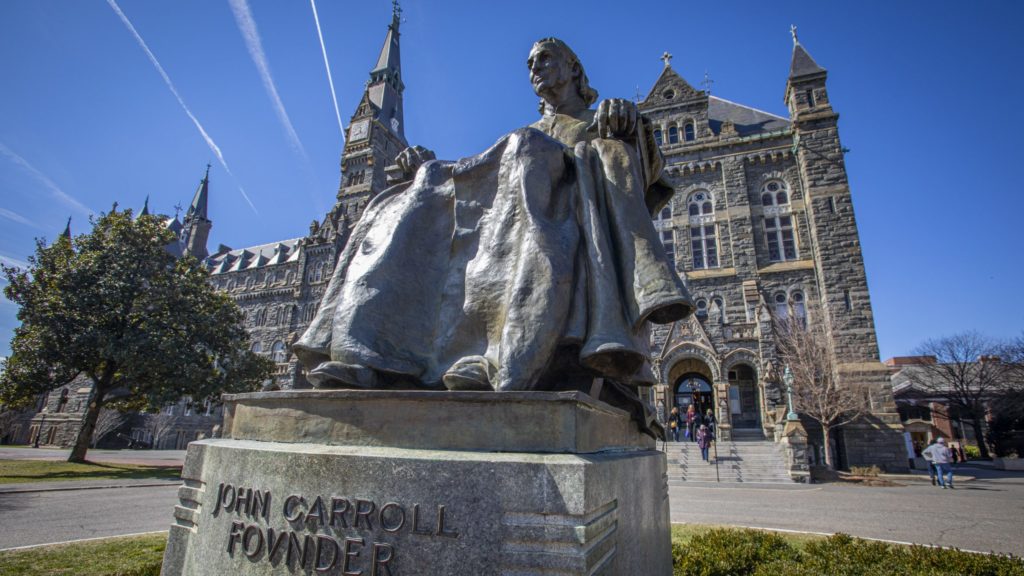In recent months a 17-member commission in the Archdiocese of Baltimore has been researching the archdiocese’s connection to slavery, with the goal that the work will lead to concrete action towards racial justice.
The new Commission on Slavery is the latest step in what’s been a years-long commitment to address the archdiocese’s connection to slavery, which over five years has included two pastoral letters from Archbishop William Lori, a working group, and a council to implement that working group’s recommendations for more inclusive archdiocesan policies and practices.
The commission was announced by the archdiocese on May 22. A spokesperson for the archdiocese told Crux on May 22 that the commission’s research phase has been underway for months now. There remains no firm timeline for the commission’s next steps, they said.
“Archivist has been diving deep into stuff for several months now,” the spokesperson told Crux in an email. “Might have a more firm timeline soon.”
In announcing the commission, Lori said its research will stretch back hundreds of years “so we can understand deeply the ties between the Archdiocese, the institution of slavery and the inhumane treatment of those enslaved and their descendants.”
Founded in 1789, the Archdiocese of Baltimore is the oldest diocese in the United States.
“And our efforts will not stop there: We will sincerely acknowledge the harm inflicted generation after generation, through the era of slavery and Jim Crow, to the systemic racism that still confounds us today, and will work closely with the Black Community to promote healing and reconciliation,” Lori said in a May 22 statement.
The commission’s research includes analyzing records – financial and tax statements, sacramental and census documents and the written works of archbishops and leaders of religious communities engaged in ministry in Maryland, according to the archdiocese.
Out of that work, the archdiocese anticipates “opportunities for atonement, repair and community engagement” that could include the development of educational materials, scholarships, a Mass of healing and reconciliation, archdiocesan investments in Black-owned businesses, and a more focused attention to addressing disparities in health.
The commission includes a mix of clergy – including Lori and Archdiocese of Baltimore Auxiliary Bishop Bruce Lewandowski – as well as lay historians, researchers, educators, parishioners, and experts in diversity, equity and inclusion.
Adrienne Curry, the director of the Archdiocese of Baltimore Office of Black Catholic Ministries, said in a statement that the commission’s look at the history of racism will “help us better understand why we are where we are.”
“A lot of people say ‘slavery happened so long ago’ that Black people should ‘get over it,’ Curry said in a May 22 statement. “They need to understand the intricacies of systemic racism that are involved with that. Going back to the abolition of slavery, to Jim Crow, to the Civil Rights Movement, to redlining – all of that has had a profound effect on the Catholic Church here in Baltimore.”
“The commission will look at that history of racism to help us better understand why we are where we are,” Curry continued.
The archdiocese’s efforts to address its connection to racism began with Lori’s 2018 pastoral letter, “The Enduring Power of Dr. Martin Luther King Jr.’s Principles of Nonviolence.” That was followed by another pastoral letter in 2019, “The Journey to Racial Justice: Repentance, Healing and Action.” That letter led to the aforementioned working group and council.
In that 2018 pastoral letter that springboarded the archdiocese’s efforts, Lori highlighted how King’s principles are meant to change both person and society, which is why they’re at the core of the archdiocese’s racial justice efforts.
“Dr. King’s principles of nonviolence help guide us toward changing the narrative from fear to courage; from enmity to friendship; from injustice to human dignity; from hate to love,” Lori wrote.

